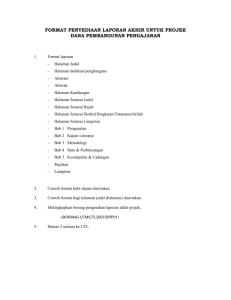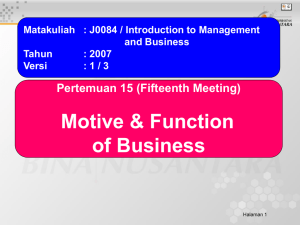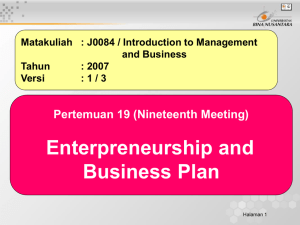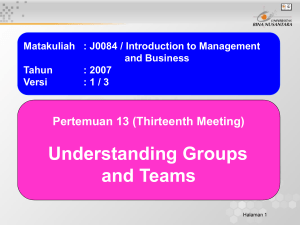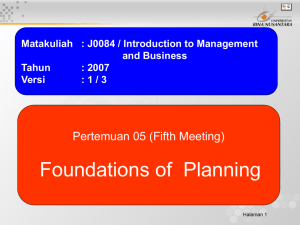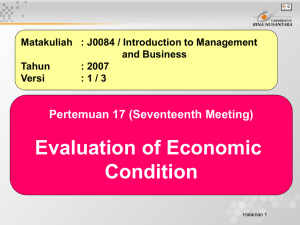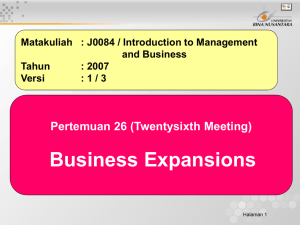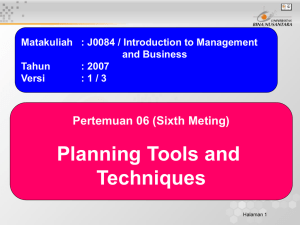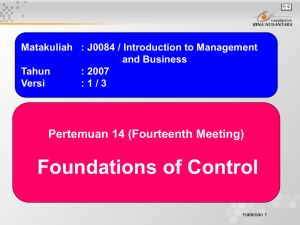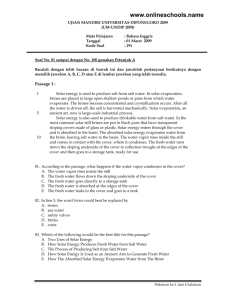Foundations of Behavior Pertemuan 12 (Twelfh Meeting) and Business
advertisement
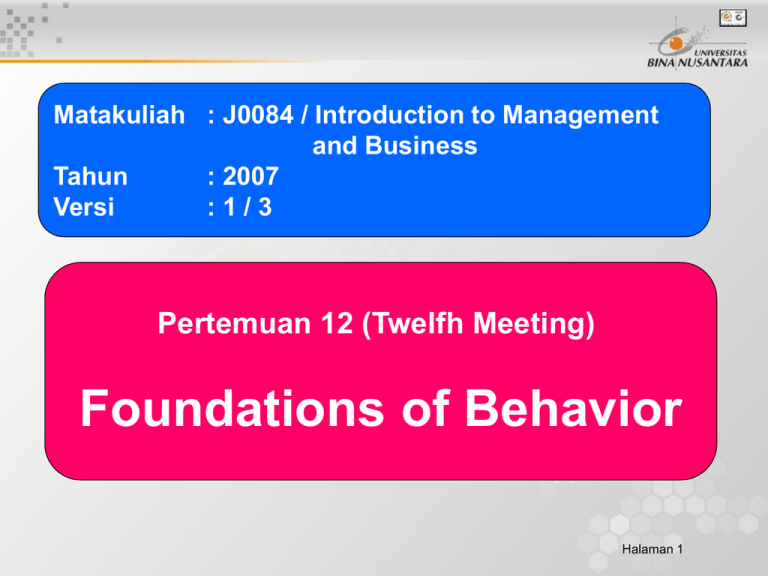
Matakuliah : J0084 / Introduction to Management and Business Tahun : 2007 Versi :1/3 Pertemuan 12 (Twelfh Meeting) Foundations of Behavior Halaman 1 Learning Outcome Student should be able to show the importance how managers recognize about the subordinate attitude and behavior in order to put them in the proper position -> C3 Halaman 2 Learning Outline • Why Look at Individual Behavior • Attitudes • Personality • Perception • Learning • Contemporary OB Issues Halaman 3 1. Why Look at Individual Behavior a. Focus of Organizational Behavior 1) Individual Behavior 2) Group Behavior b. Goals of Organizational Behavior 1) Explain 2) Predict 3) Influence Halaman 4 2. Attitudes Attitudes are evaluative statements – either favorable or unfavorable – concerning objects, people, or events Attitudes is made up of three components: 1) The cognitive component 2) The affective component 3) Behavioral component Halaman 5 a. Job Satisfaction 1) 2) 3) 4) 5) 6) Global Job Satisfaction Satisfaction and Productivity Satisfaction and Absenteeism Satisfaction and Turnover Job Satisfaction and Customer Satisfaction Job Satisfaction and Workplace Misbehavior Halaman 6 b. Job Involvement and Organizational Commitment c. Attitudes and Consistency d. Cognitive Dissonance Theory e. Attitudes Survey Halaman 7 3. Personality a. The Myers-Briggs Type Indicator (MBTI) 1) Social interaction: Extrovert or Introvert (E or I) 2) Preference for gathering data: Sensing or Intuitive (S or N) 3) Preference for decision making: Feeling or Thinking (F or T) 4) Style of making decision: Perceptive or Judgmental (P or J) Halaman 8 b. The Big Five Model 1) 2) 3) 4) 5) Extraversion Agreeableness Conscientiousness Emotional stability Openness to experience Halaman 9 c. Additional Personality Insights 1) 2) 3) 4) 5) Locus of control Machiavellianisme Self-esteem Self-monitoring Risk taking Halaman 10 d. Emotions and Emotional Intelligence Six universal emotional: anger, fear, sadness, happiness, disgust, and surprise Emotional intelligence (EI): • • • • • Self-awareness Self-management Self-motivation Empathy Social skills Halaman 11 4. Perception Perception is a process by which individuals give meaning to their environment by organizing and interpreting their sensory impressions a. Factors That Influence Perception 1) The Perceiver 2) The Target 3) The Situation Halaman 12 b. Attribution Theory Distinctive ness Individual Behavior High External Low Internal High Consensus Consistency External Low Internal High External Low Internal Halaman 13 c. Shortcuts Frequently Used in Judging Others When we judge someone on the basis of our perception of a group he or she is part, we’re using the shortcut called stereotyping Halaman 14 5. Learning Learning is any relatively permanent change in behavior that occurs as a result of experience a. Operant conditioning b. Social Learning 1) 2) 3) 4) Attentional processes Retention processes Motor reproduction processes Reinforcement processes Halaman 15
